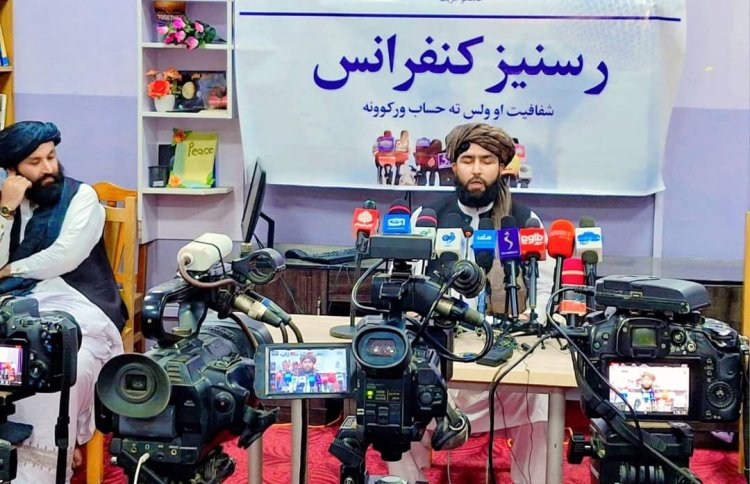Afghan Journalists: Censorship and Lack of Access to Information Have Weakened Media Content

In Afghanistan, a number of journalists and media officials say that in addition to the economic challenges caused by the suspension of U.S. aid, restrictions imposed by the Taliban and the lack of information sharing have had a negative impact on the quantity and quality of media content.
Zarmina Kakar, a journalist working with an audio media outlet in Kabul, says that many of her reports remain unpublished due to the Taliban regime's failure to share firsthand information.
She is concerned that certain restrictions in the working environment of journalists are leading to more journalists losing their jobs if the situation continues.
Kakar adds: "I produce two feature reports every day for my outlet, but often the officials do not share information about the topic. Most of the time, questions must be submitted in advance, and only one of them is answered. The main questions remain unanswered, which prevents the report from being published."
According to her, censorship and the failure of authorities to share information on time have placed limitations on journalists and weakened the motivation for accurate reporting.
She says that the challenges facing journalists and media outlets have disrupted the process of providing information in Afghanistan.
Kakar further explains: "The situation for journalists in Afghanistan is getting worse by the day. Journalists convey the problems of society to officials and help find solutions. But when officials don’t respond, the journalist’s efforts are futile. Many journalists are disheartened with their profession."
Another journalist, who wished to remain anonymous, says that since the Taliban took power, the media has been severely harmed, and due to imposed restrictions, both the quality and quantity of content have significantly decreased.
According to him, the Afghan media is not entirely independent and is systematically subjected to censorship.
He said: "In many provinces, the Taliban have banned the publication of images of living beings. This has negatively affected the work of journalists and media. A television report without visuals is meaningless."
He stressed that these actions have subjected journalists to intense psychological pressure, causing many of them to quit their media activities.
This journalist also emphasized the importance of protecting freedom of expression as a basic human right and called on the Taliban to stop suppressing media and freedom of speech and to ensure the safety of journalists and freedom of expression.
He said: "Since the Taliban took power, the media has been publishing very low-quality content, which is deeply concerning. Not sharing information with journalists has also harmed the volume of content. We want this problem to be addressed."
Meanwhile, the director of a private audio media outlet in Nangarhar, who also wished to remain anonymous, says that due to restrictions on publishing certain topics, some staff members have been dismissed or downsized.
He states that the lack of access to information and economic problems facing the media are among the major challenges for media in Afghanistan.
He added: "Often our journalists do not receive timely information, and if we publish something, the Taliban imprison us. We are in a confusing situation—what to publish and what not to. As a result, most broadcasts are limited and content is not prioritized due to the presence of censorship."
At the same time, international journalist organizations have expressed concern about the deteriorating state of journalism and media in Afghanistan, stating that during the Taliban's past three years in power, many media outlets have been shut down, and journalists and media workers have lost their jobs.
These organizations describe the current situation as harmful to access to information and freedom of expression in the country, and believe it has severely curtailed the activities of independent media in Afghanistan.
This comes as the economic challenges of the media have worsened due to the suspension of U.S. aid, resulting in hundreds of journalists and media workers losing their jobs in visual media outlets.
